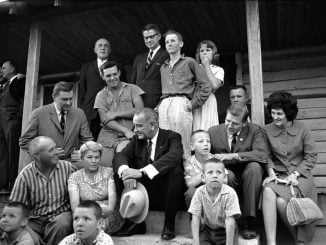In the history books, Anti-Federalists are frequently portrayed as losers. Without them and their political strategy, however, Americans probably would not have the Bill of Rights.
In 1787, the Philadelphia Convention delegates submitted the U.S. Constitution, as outlined in Article 7, to the ratification process. Subsequently, Federalists and Anti-Federalists debated the document’s merits. Both political camps also debated the meanings of various constitutional phrases. All debate, however, revolved around one key question: Was it advisable to give more “energy” to the “general government”?
With the Revolutionary War experiences fresh in their memories, Anti-Federalists had two answers. One answer was “no.” Another more common answer was “maybe.” They were amenable, only if individual liberties were protected by a Bill of Rights.
North Carolina was the only state that held two ratification conventions. The state initially did not reject or ratify the Constitution. The move was not indecision. It was a tactic.
Willie Jones, Timothy Bloodworth and Samuel Spencer were the leading North Carolina Anti-Federalists. Jones was the reticent mastermind. Bloodworth was the most contentious and inquisitive. Spencer was the most eloquent. Here are some of their concerns, as expressed during the 1788 North Carolina Ratification Convention.
Bloodworth: “This Constitution, if adopted in its present mode, must end in the subversion of our liberties. … I hope the Representatives of North-Carolina will never swallow the Constitution till it is amended.”
Spencer: “It is well known that men in power are apt to abuse it, and extend it if possible. From the ambiguity of this expression, they may put such construction on it as may suit them. I would not have it in such a manner as to endanger the rights of the people.”
Spencer: “It appears to me, that the powers are too extensive, and not sufficiently guarded. I do not wish that an aristocracy should be instituted. An aristocracy may arise out of this government, though the Members be not hereditary. I would therefore wish that every guard should be placed, in order to prevent it.”
Spencer: “There ought to be a bill of rights, in order that those in power may not step over the boundary between the powers of government and the rights of the people, which they may do, when there is nothing to prevent them.”
Spencer: “I wish to have a bill of rights, to secure those unalienable rights, which are called by some respectable writers the residuum of human rights, which are never to be given up.”
Bloodworth: “Without the most express restrictions, Congress may trample on your rights. Every possible precaution should be taken when we grant powers. Rulers are always disposed to abuse them.”
Bloodworth: “I hope this Convention never will adopt it till the amendments are actually obtained.”
Jones: “Are we to ratify it at all events? Have we not an equal right to reject? We do determine by neither rejecting nor adopting. It is objected we shall be out of the union. So I wish to be. We are left at liberty to come in at any time. … If I recollect rightly, the Constitution may be ratified either by Conventions or the Legislatures of the states. In either case, it may take up about 18 months. For my own part, I would rather be 18 years out of the union than adopt it in its present defective form.”
In 1788, North Carolina neither rejected nor approved the Constitution — “a very awful moment,” according to leading Federalist James Iredell. North Carolina Anti-Federalists were waiting for a Bill of Rights addendum. Eventually, they approved the Constitution in 1789.
Knowing the tendencies of power, Anti-Federalists thought, Americans might one day need those specific protections of individual liberty contained in a Bill of Rights.



